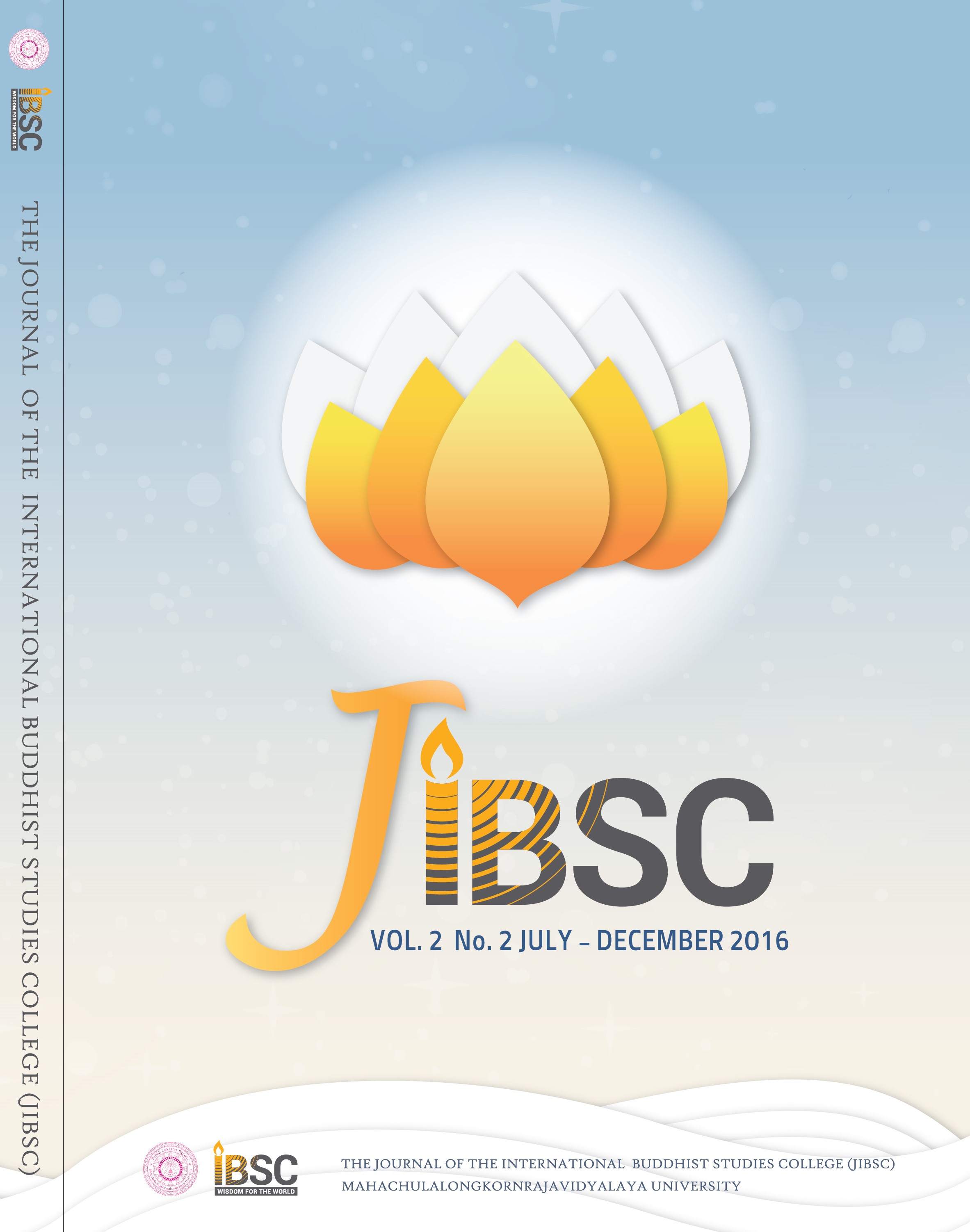PSYCHOLOGICAL ASPECTS IN THE DOCTRINE OF DEPENDENT ORIGINATION
Main Article Content
Abstract
This research is an attempt to examine the psychological aspects of the Buddha’s most cardinal and fundamental doctrine of Dependent Origination (paṭiccasamuppāda) along with drawing out a clear picture of the constituents from the law of causation and analyzes the mental states and motivational factors behind each constituent among twelvefold links. Meticulous research into the doctrine of Dependent Origination reveals how the main links provide a framework for psychological analysis through volitional formation (saṅkhāra), consciousness (viññāna), mentality and materiality (nāma-rūpa), contact (phassa), feeling (vedanā), craving (tanhā) and clinging (upādāna). This paper further illustrates the notion of perception (saññā), which can be found in the function of volitional formation (saṅkhāra), is a contributing factor, according to modern psychology, in the role of understanding human (puggala) motivation. The psychological analysis of Dependent Origination expounds the concept of personality highlighting present existence through the inter-relationship of the fi ve faculties (pañcaupadānakkhandhā): form (rūpa), feeling (vedanā), perception (saññā), volitional formation (saṅkhārā) and consciousness (viññāṇa).
Article Details
The Journal of TCI is licensed under a Creative Commons Attribution-NonCommercial-NoDerivatives 4.0 International (CC BY-NC-ND 4.0) licence unless otherwise stated. Please read our Policies page for more information on Open Access, copyright and permissions.


